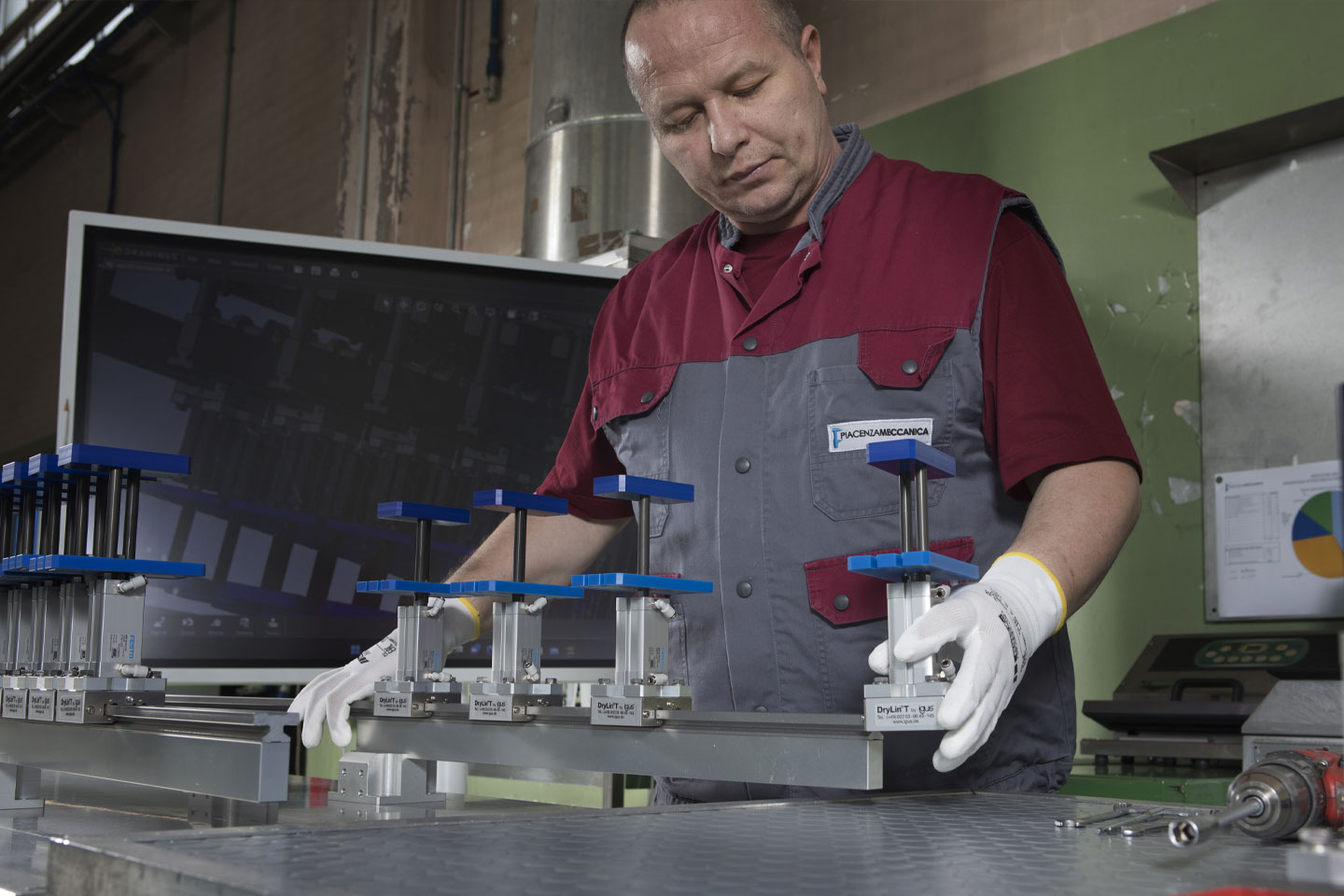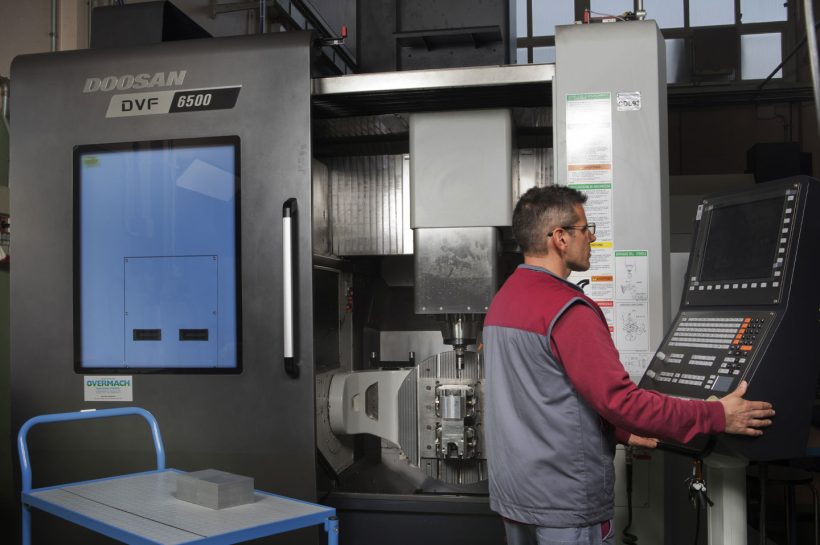PiacenzaMeccanica, a company on a human scale

Metalworking industries and workshops are a central strategic asset in the economies of several nations, and the way they have changed and evolved over time is highly representative of the vision of progress and entrepreneurial policies foraged by private individuals and governments. Complex mechanical processing of the highest precision serves a variety of industries, from the most traditional to the most technological. Railroad, aeronautics, robotic automation, fluid dynamics, hydrosanitary: being an integral part of industry understood in its broadest sense, the components produced in precision machining centers are essentially ubiquitous.
In order to meet the need for just-in-time, highly specialized and variable-volume production, a series of infrastructural interventions have become necessary over the years, reflecting a dutiful change in the mentality of the engineering sector. Putting up with unprecedented demands from markets in perpetual transformation, and remaining competitive by operating with a view to shared responsibility for the welfare of people and the planet, are the primary and complementary goals of every company looking to the future.
Machine shops today, are no longer those dirty, unhealthy and pitfall-filled places that characterized the past. The adoption of methods and the implementation of technologies that meet the standards expressed by the BAT - Best Available Techniques - approach have brought about a radical change of scenery. Gone are the days of blue-collar alienation, a metaphor for the consumer society of the 20th century, contemporary industry comes in a new guise. Fordist ideology oriented on massive, standardized production meets white-collar style, offering flexibility and customized services for specific needs and niche markets. The assembly-line paradigm gives way to production and organizational models increasingly linked to the presence of innovative technologies, and information systems that manage production, perform control functions, and offer the ability to collect and interpret strategically important data.
To cross the threshold of a company that operates according to these logics is to completely distort one's imaginary frame of reference, and to be catapulted into a dimension that has nothing to do with the factory that demeans the worker and looks solely at profit. As happens upon entering PiacenzaMeccanica.
Industry 4.0: innovation in the service of manufacturing
The term Industry 4.0 refers to a series of concepts related to the imagery of the smart factory-the "intelligent factory" equipped with hardware and software that can interact and collaborate to make productions more versatile and perfomant. Well before this definition was taken up as a normative model, anticipating nascent trends in the manufacturing and industrial sectors, PiacenzaMeccanica chose to invest in cutting-edge technology and machinery, and in training andtechnical upgrading of personnel.
In recent years, the company has completely overhauled its machine park to equip itself with tools suitable for the most labor-intensive and complex machining operations, and for more streamlined and versatile management of the various turning and milling machining centers.
Automated management systems with on-board software and tablets instruct the operator on the actions to be taken: they establish the steps-types and sequence of machining operations-define machine tooling, monitor the production of the site as a whole, and coordinate the operation of the various machining centers to limit production stoppages. Finished parts are then stored in an automated warehouse that simplifies inventory management and speeds up order fulfillment. The impact of such solutions on productivity and business profitability is significant: thanks to so-called enabling technologies, the possibility of human error is reduced to a minimum; at the same time, optimal conditions are created for operators to work in total autonomy and safety.
Attention to the quality of life of its resources is the real strength of any solid and reputable company. This is why PiacenzaMeccanica has equipped itself with systems that go beyond the basic safety standards for the industrial sector-regulated by Law 81/08 or the Consolidated Safety Act. Such as, for example, filtration systems for air purification within the production site. Lubricant-cooling oils, used in mechanical processing, give rise to the formation of sticky fumes and oily mists that, dispersed in the air, can compromise both the health of workers, causing respiratory problems and skin irritation, and production, negatively affecting the performance and durability of machinery. Attention to certain issues, although it should be, is by no means taken for granted. Certain shrewdnesses are the result of experience, express the values andheritage of a long-lived company, and testify to a commitment to hold firm to the principles that inspire a healthy work culture



